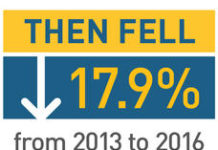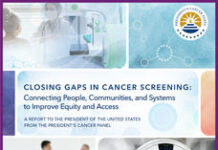
I’ve worked for Cancer Research UK for over 5 years now. Before that, I worked in the NHS for 6. You’d think I’d be a model patient, I’d know all the signs and symptoms and be meticulous about checking myself, attending my screening appointments, all of that.
So it’s strange that I only properly looked at my moles recently, after I heard about a friend of a friend who died from melanoma. It’s even stranger when you know that I’m a pale, freckly redhead, with a family history of skin cancer. And it turns out I’m absolutely covered in abnormal moles.
My two-week wait referral took a month. A month of rationalising, panicking, ill-advised googling. A month of taking everything at work far too personally, sleepless nights, spiralling with anxiety to the point that I knew all the treatment options, had thought through how we’d bring forward the wedding, how I’d tell my parents. None of this was rational.
In the end, it turns out I’m probably fine. After an extensive and quite surreal body mapping exercise, just one of the many abnormal moles was a cause for concern, and I’ll monitor it over the next few months. It turns out that for me, abnormal is probably normal.
But I am left with questions like:
“Why did I have a blind spot?”
Thinking about it, I have several friends and family members with similar stories – something niggling at the back of their minds that wasn’t right, but it took months or years to seek help. So what is it – fear? That typical British stiff upper lip? Not wanting to waste the doctor’s time? Or just the delusion that “it can’t happen to me”?
This is a big question, and I don’t have the answer to it. But I know I was lucky – for me, it was just a scare. But during the pandemic, more than 45,000 fewer people have been diagnosed with cancer than we’d normally expect in that time – partly because the fear of catching covid has joined that long list of reasons why people don’t go to their GP.
So if you’ve also got some weird symptoms, please, get them checked out. It’s probably nothing – and trust me, you’ll feel relieved to know that – but if it’s something, you’re better off knowing now than later. If it’s cancer, finding it early usually means less invasive treatment and a better chance of a cure.
But maybe in the future this won’t be such a problem.
Maybe we’ll all have regular blood tests that will tell us if cancer is brewing somewhere within us. Maybe there’ll be better ways to monitor our symptoms at home. We hope that one day, science will render our stiff upper lips redundant. We hope that the Government will support that science too. But for now, I’ve had a wake-up call – and I’m off to book my smear test.
Rose is special adviser to Cancer Research UK’s chief executive, Michelle Mitchell OBE. She worked in Cancer Research UK’s policy team for several years, and led our influencing work on access to cancer treatments. Before joining Cancer Research UK she worked in the NHS for six years as a nursing assistant.






